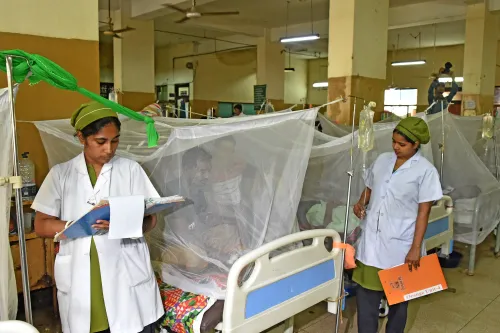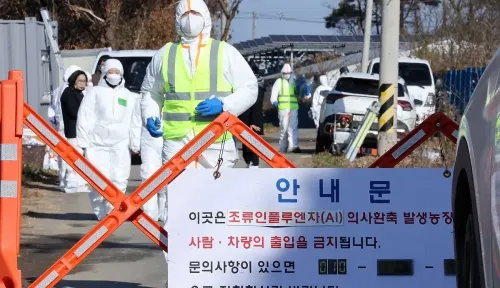Is CPA the Only Agency Responsible for Medicine Procurement in Delhi?

Synopsis
Key Takeaways
- CPA is now the exclusive agency for procurement.
- Direct purchases by hospitals are prohibited.
- Focus on patient care is emphasized.
- Procurement will follow a structured e-procurement process.
- Emergency exceptions require CPA approval.
New Delhi, June 4 (NationPress) On Wednesday, the Delhi government transferred the complete responsibility of procuring medicines and medical devices across hospitals to the Central Procurement Agency (CPA).
In a communication addressed to the Secretary of Health and Family Welfare at the Delhi Secretariat, the Director of DGHS, and all MDMS, Atul Marwaha, OSD to the Minister, highlighted that this decision marks a historic milestone in enhancing the effectiveness of the healthcare system and making it more patient-centric.
According to the letter, "The CPA is now the exclusive agency tasked with procuring medicines, consumables, medical devices, machinery, and equipment." It is essential to note that procurement will be managed by the CPA based on requests received from the specific hospitals, institutions, and healthcare facilities within Delhi.
The decision follows incidents where certain hospitals had been acquiring medical devices and consumables through direct purchases or utilizing the cart feature on the Government e-Marketplace (GEM) portal, leading to inflated prices, discrepancies, and serious audit compliance issues.
Under the new directive, all purchases of medical devices, consumables, machinery, and equipment must be processed exclusively through the e-procurement mechanism.
Hospitals are now strictly prohibited from making direct purchases or engaging in cart-based procurement on the GeM portal.
The letter stated, "All demands and bidding procedures will be managed solely by the Central Procurement Agency (CPA). No hospital or institution is permitted to undertake cart purchases or initiate direct bidding. All procurement needs and requests must be directed to the CPA."
In exceptional or emergency situations where immediate procurement via the GeM cart is unavoidable, the respective institution must submit the request to the CPA, which will evaluate the urgency and facilitate procurement on behalf of the hospital.
"Any deviation from these guidelines will be taken seriously and could lead to disciplinary and/or legal actions as deemed appropriate by the competent authority. This directive has received the endorsement of the Minister for Health & Family Welfare and must be implemented rigorously by all relevant officials and institutions," the letter emphasized.
This new policy allows doctors and medical personnel to concentrate their efforts on patient care rather than administrative tasks, ultimately enhancing patient services.
“This decision serves the interest of patients, as doctors can now devote more time to patient interactions, significantly improving treatment quality,” a spokesperson for the Delhi Government remarked.










